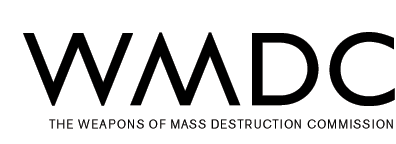| |
 |
 |
 |
FAQ
Is there a need for a Weapons of Mass Destruction Commission?
Yes! In the Cold War, weapons of mass destruction were considered mainly in the context of East-West political and military rivalry. During the 1990s, the Canberra Commission on the Elimination of Nuclear Weapons and the Tokyo Forum for Nuclear Non-Proliferation and Disarmament sought to provide post-Cold War thinking on nuclear weapons, but the political context has changed dramatically since those Commissions reported.
Recent developments, and particularly the growing instabilities of failing states and threats from non-state actors and sophisticated terrorist networks, have led to an increased awareness of weapons of mass destruction. Existing agreements and negotiations, although relatively successful in some areas, were established in a different era, and may need to be adapted and strengthened to deal more effectively with the heightened contemporary risks of proliferation and attempted use of devastating weapons. In addition, there is a compelling need for a fresh and comprehensive approach to all the issues relating to weapons of mass destruction and their delivery means. Such an approach needs to be willing – without pre-existing prejudices or taboos – to look anew at the political and military roles, uses and attractions of nuclear, chemical, biological or radiological weapons for states and nonstate actors; their means of production and acquisition, including blackmarket and defence-related trade in equipment and technologies; and all aspects of prevention, non-proliferation and disarmament.
What will be the result of the work of the WMDC?
The Commission’s task will be to forge realistic and constructive ideas and proposals aimed at the greatest possible reduction of the dangers of weapons of mass destruction, including both short-term and long-term approaches, comprising prevention, non-proliferation and disarmament aspects. These ideas and proposals will be contained in the final report, due to be published in early 2006. There may also be interim proposals or discussion documents.
The work of the Commission will of course be of little value unless it generates wider debate, and governments and organizations, as well as civil society, are persuaded that the proposals contained in the report are worth supporting and implementing. This is what we hope will be the result, if not for all our recommendations, then at least for some!
Will the WMDC visit ”suspect” countries in search of Weapons of Mass Destruction?
No, the mandate of the WMDC is to provide ideas on how to strengthen non-proliferation and disarmament of weapons of mass destruction. In that sense the Commission will function as a think tank and not as an investigative body. The WMDC therefore is different from commissions such as UNSCOM or UNMOVIC.
How were the Commissioners appointed and why were they selected?
Dr Hans Blix was approached by late Swedish Foreign Minister Anna Lindh, and asked to serve as the Chair of the Commission.
Dr Blix then selected the Commissioners from all regions of the world, and asked them if they would be willing to participate in the Commission on a personal basis. The ambition was include people in the Commission with different kinds of expertise in non-proliferation and disarmament, weapons of mass destruction and international security. The Commission therefore comprises people with experience ranging from high-level positions in government, military, international organisations, academia or NGOs. Together they give the Commission a broad geographical and political base and represent a vast reservoir of expert knowledge and political experience.
Is the WMDC really independent or will it act in accordance with Government policies?
Although the Swedish Government took the initiative of setting up the Commission and providing the initial funding, it has always been clear that the Commission would be fully independent in its proceedings and not subject to any governmental instructions.
The Commissioners themselves are fully aware that they will not speak for the countries they come from but are expected to serve in their personal capacity.
Will the Commission only meet in Stockholm?
The Chair and Secretariat of the Commission are based in Stockholm, but this does not mean that all or even most meetings and conferences will be held there. The Commission will actively seek to arrange meetings and conferences in other parts of the world, to incorporate a wide range of international perspectives.
On what material will the Commission base its work?
Since the Commission has no intention of reinventing the wheel, the first step is to assess what is currently known and sift the wealth of information already available on weapons of mass destruction. Building on this, specialist research will then be commissioned from a variety of institutions and individuals, with a view to determining the key questions, exploring certain areas more deeply, and formulating policy-relevant recommendations.
The Commission also welcomes reports and proposals presented to it by governments, international organisations, NGOs, academic institutions and individuals.
Who can contribute to the work of the WMDC?
Governments, organisations and individuals that have proposals or studies that they would like to present to the Commission are welcome to send it to the Secretariat of the WMDC, either electronically or by normal mail. Contact information is available under “Contact us”.
Financial and other kinds of contributions are also greatly welcomed. Though the Commission received its initial set-up costs from the Swedish Government, it needs funds from other sources, such as governments, foundations and philanthropic individuals, in order to carry out its work and complete its report. In addition to financial support, contributions could be made by hosting and/or financing meetings, seminars and conferences, or funding specific expert studies, as required.
More questions for the WMD Commission?
Email your questions to [email protected] and we will respond where possible by email or via the website.
|
|

